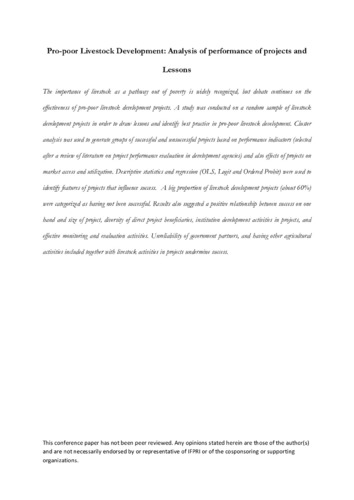Pro-poor livestock development: Analysis of performance of projects and lessons
Abstract
The importance of livestock as a pathway out of poverty is widely recognized, but debate continues on the effectiveness of pro-poor livestock development projects. This study examines a random sample of livestock development projects to draw lessons and identify best practices. It used cluster analysis to generate groups of successful and unsuccessful projects based on performance indicators (selected after a review of literature on project performance evaluation in development agencies) and also on effects of projects on market access and utilization. The study applies descriptive statistics and regression (OLS, Logit and Ordered Probit) to identify features of projects that influence success. Although about 60% of livestock development projects were categorized as unsuccessful, the results shed light on ways to foster the successful livestock development projects. Big-budget projects implemented over long periods of time tend to be successful. Targeting of market actors from multiple stages of the value chain is associated with project success, supporting the current trend in whole-chain project design. Institution development activities in projects, effective monitoring and evaluation, and involvement of beneficiaries in project design and management also enhance success. Furthermore, against a backdrop of growing enthusiasm for market-led development, the results indicated that project activities need not necessarily feature marketing-related activities to deliver market-related results; rather, a well-implemented project did so regardless of its content. Conversely, unreliability of government partners and inclusion of other non-livestock agricultural activities in projects undermine success.

